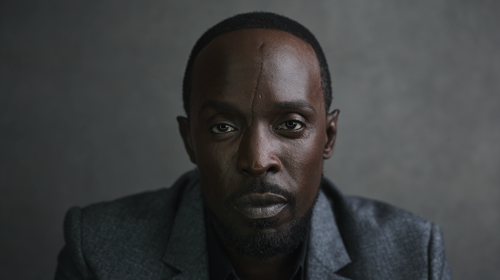
When I was growing up in East Flatbush, one of the toughest neighborhoods in Brooklyn, one of my very best friends was something else. He, let's call him MZ, could have had Hollywood on a string. He was actually my inspiration for becoming an actor.
MZ, however, suffered from bipolar disorder. Too poor to get the mental health care he needed, he ended up behind bars, and it wrecked him. He was no longer the friend and brother I knew. Between the disorder and what he experienced in prison, he's never been the same ŌĆō a shell of his former self.
Stories like MZ's are all too common. Our society has been using jails and prisons as a dumping ground for the mentally ill and those addicted to drugs. These human beings don't belong in prison, they belong in treatment, yet we've pushed them into cages and denied them their humanity.
Is it shocking that these same valuable citizens, like my friend MZ, emerge worse off than when they went in? Let's face it: America is addicted to mass incarceration, and it's making our society sick.
Our habit of locking away human beings is a particularly unseemly kind of addiction for a country that prides itself on freedom, especially when the United States more of its citizens than China, Russia, or Iran. Right now America has about 5 percent of the world's population but is responsible for 25 percent of the world's incarcerated population. In other words, one out of four people in prison today are inside U.S. jails and penitentiaries. That is nearly ŌĆō an obscene number.
In America, it is black men, more than anyone else, who suffer from our dependence on mass incarceration. Currently, black men are more likely to be imprisoned in federal and state prisons and local jails than white men. This horrifying racial disparity comes in part from the war on drugs, which has been devastating communities of color for the past four decades. Although blacks and whites use illegal drugs at , African-Americans make up of those put away for drug offenses in state or federal prison, even though we only make up 13 percent of the U.S. population.
We need to realize that these statistics represent human beings. These men are someone's child, someone's parent. Someone loves them and still wants the best for them. These men have dreams of being great, too.
Ruining people's lives for small, nonviolent offenses tied to drug use, drug addiction, or mental illness is not the way to go. Health problems are health problems, not criminal justice problems. It's by the grace of God that I didn't get into more serious trouble. If I had, there's no way I'd be where I am today.
I will never forget that there are many more men with bright futures who look like me that have been relegated to our prison systems. However, instead of being provided with opportunities to express themselves or their creativity safely or getting the right support, they make mistakes which cost them dearly. The costs of those mistakes are high and these men pay with their futures.
Once people have done hard time, the world closes in on them. It's damn near impossible to get a job. Depending on where you live, you likely can't vote. The possibility of becoming a productive citizen is foreclosed on by a system that denies those who have served their time with another chance. Instead, they're forever seen as ex-cons.
And don't forget the huge cost of confinement. The U.S. spent on locking up people on the local, state, and federal level, which could be better spent on education, health care, or simply getting at-risk people the counseling they need so they don't fall back into addiction and petty crime.
We have spent 40 years stuffing our prisons, mostly with black and brown men, and for what? This isn't who we are. America, we can do better. We have to, for all people. I know because MZ deserved better, and there are hundreds of thousands more like him.
Michael K. Williams is the └Ž░─├┼┐¬Į▒Įß╣¹ ambassador for ending mass incarceration. He is an actor living in Williamsburg, Brooklyn.
Learn more about mass incarceration and other civil liberty issues: Sign up for breaking news alerts, , and .
